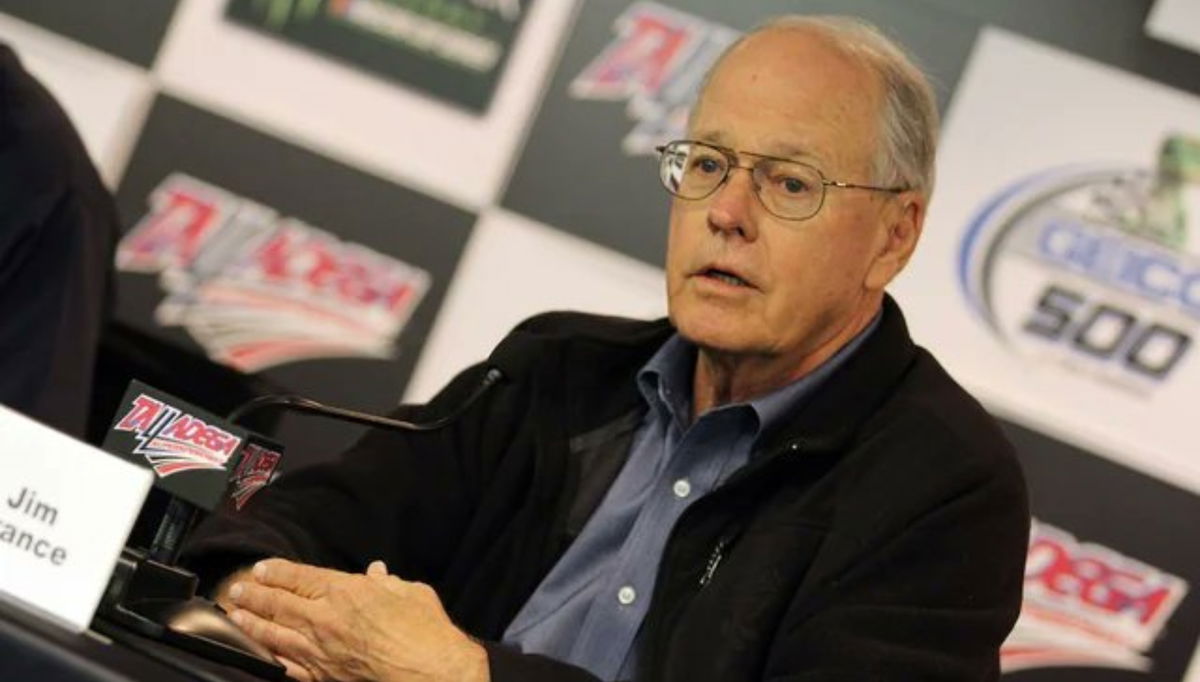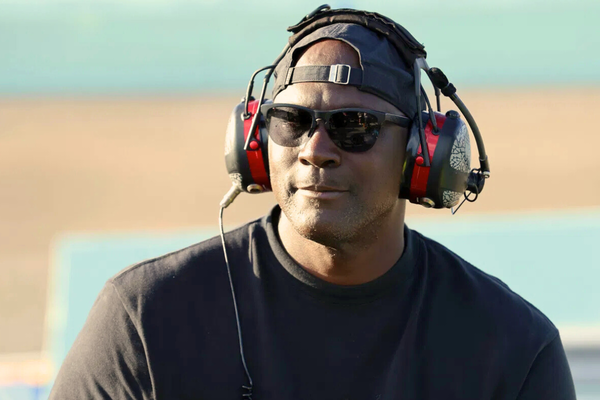
Imago
From Twitter

Imago
From Twitter
Initially, in 2016, the charter system started with good intentions, like giving teams a guaranteed entry and providing some financial and sponsor stability. Their plan was to make the sport healthier and more transparent, boosting the prize money. But today, that very trust and faith in the system is being questioned, as teams challenge NASCAR through lawsuits.
Watch What’s Trending Now!
23XI Racing and Front Row Motorsports are those teams. They claim that the system favors the big teams despite the spot guarantees it provides. NASCAR’s frustration about these lawsuits is well known, so let’s take a look at it from an insider’s lens.
Insider reveals NASCAR’s ‘good faith’ gamble backfiring
Jordan Bianchi, a sharp voice in the NASCAR sport, pulled no punches on the charter system’s roots. “NASCAR, to its credit, went along with the charter system. They didn’t have to. It was almost a good faith kind of thing. They did because they wanted to give value to the teams and to owners who have invested a lot of money into this, and it’s your point,” he said on the Kelly Wallace podcast.
This system was introduced in the sport after decades of heartbreak, which was faced by many owners like Ricky Rudd or Darrel Waltrip. It means owners who decided to close their teams have to sell their racing spots and equipment for pennies despite the large amount of money they have invested, leaving them empty-handed.
And then NASCAR saw the need for stability and assurance in the sport to make the sport healthier, so they introduced the charter system in 2016, which guaranteed entry to every point race and a bigger piece of the revenue money. It was estimated that over $100 million annually was shared among 36 teams. It worked wonders for all the teams and also lifted the sport from an uncertain financial grip to a pro league vibe.
Bianchi later in the podcast dove deeper into the payout perks. Charters meant more cash flow for the sport, where even non-chartered teams survived on minimal funds, while charter holders pocketed premium purses that funded better cars and talent. After the system was introduced, charter values skyrocketed from $2 million in the early years to $45 million for the latest sale, which proved the system’s effect in making teams profitable assets.
But here’s the catch that Binachi shared: “There’s a frustration of, ‘We did all these things. We’ve acted in good faith…’ Last year, 13 teams were on board with this new agreement, and yet two of them weren’t, and they’re suing us.” That sting hits hard for NASCAR, which injected this system to unite everyone, only to face a courtroom fight from allies turned foes.

Imago
HOMESTEAD, FL – OCTOBER 27: Michael Jordan watches from his driver Tyler Riddick s pit, the NASCAR, Motorsport, USA Cup Series Straight Talk Wireless 400 on October 27, 2024, at Homestead-Miami Speedway in Homestead, FL. Photo by Michael Bush/Icon Sportswire AUTO: OCT 27 NASCAR Cup Series Straight Talk Wireless 400 EDITORIAL USE ONLY Icon241027060400
And if NASCAR loses this charter battle, things can go real south for them. “If NASCAR loses this, I mean, they could theoretically be ordered to sell the tracks that they own. The judge could theoretically rip up the charter agreement,” Bianchi warns. Picture the fallout: if NASCAR loses this, the charter system may disappear, which might cause the chaos and uncertainties that team owners faced in the pre-charter era.
That time, small teams vanished yearly with a handful of money when they sold their spot. So this trial isn’t just about who’s going to win or lose. It’s about the fact that if NASCAR loses this, they might have to write new charter deals from scratch.
As the December trial nears, one judge’s words echo loudly, forcing NASCAR to confront its own system.
Judge’s warning puts NASCAR’s core model on trial
Federal Judge Kenneth D. Bell dropped a bombshell in recent hearings, pointing out NASCAR’s double standards. “NASCAR wants to (but cannot) have it differently on each side of the same coin—heads we win, tails you lose,” he said, spotlighting the double take of NASCAR on its own marketplace rules, and this double standard could sway the jury against them.
This stems from 2024 origins, when 23XI and Front Row sued NASCAR when they were denied extra charters for the race, and later the lawsuit evolved into a full antitrust probe. Now in 2025, with no preliminary win for the teams, they’re racing as open entries with no guaranteed spots or cash prize. And NASCAR is also denying them their current charter because they think this would make their claim weak.
The real gut punch? “This is no longer a contract dispute but rather a challenge to NASCAR’s entire business model.” Putting aside the charter dispute between the teams and NASCAR, Bell’s scrutiny threatens an overhaul to the whole system if teams win. Background shows charters as the uniting force since 2016 by distributing $1.1 billion in media rights yearly.
NASCAR needs to prove it’s being fair, and this whole situation shows the France family may need to work more closely with the teams.



